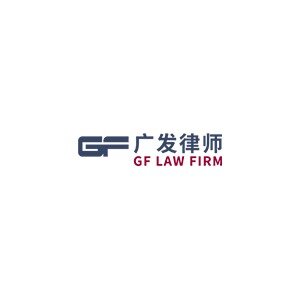Best International Lawyers in Hangzhou
Share your needs with us, get contacted by law firms.
Free. Takes 2 min.
List of the best lawyers in Hangzhou, China
About International Law in Hangzhou, China
Hangzhou, the capital city of Zhejiang Province in China, is a burgeoning hub for international trade and commerce, inviting a complex overlay of international law. In China, international law covers a wide range of subjects including, but not limited to, foreign investments, international trade, intellectual property rights, taxation, and immigration law. Hangzhou, with its rapid economic development and hosting of major international events such as the G20 summit, is increasingly subjected to the nuances of international law as it interacts with global partners.
Why You May Need a Lawyer
Given Hangzhou's active participation in international commerce, legal issues can arise in various contexts. Business entities often need lawyers to navigate international contracts, trade disputes, or establish a corporate presence in the city. Individuals might require legal assistance for matters such as immigration, employment with foreign entities, or even international family law issues like cross-border marriage and adoption. Lawyers can provide essential guidance in ensuring that the rights and obligations of those involved are protected and aligned with the pertinent international and domestic regulations.
Local Laws Overview
The key aspects of local laws in Hangzhou relevant to international dealings are primarily centered around the city's openness to foreign investment and international trade. Hangzhou follows the national laws of China, which include regulations on foreign direct investment, such as the Foreign Investment Law, and trade policies under the framework of the World Trade Organization (WTO). Additionally, intellectual property protection is crucial, given the city's strong focus on technology and innovation. Moreover, Hangzhou has its local bureaucratic and legal processes related to obtaining business licenses, permits, and complying with local tax regulations, all of which have international implications.
Frequently Asked Questions
What legal structures are available for foreign businesses in Hangzhou?
Foreign businesses can opt for various structures such as Wholly Foreign-Owned Enterprises (WFOE), Representative Offices, Joint Ventures, or Partnership Enterprises when expanding to Hangzhou.
How are intellectual property rights enforced in Hangzhou?
China has specific laws to protect intellectual property rights, and in Hangzhou, the local administrative and judicial bodies enforce these laws. Foreign entities are advised to register their IP and seek legal counsel to navigate any infringement issues.
Are there any special economic zones in Hangzhou?
Yes, Hangzhou houses several economic zones like Hangzhou Hi-Tech Industrial Development Zone (Binjiang) and Hangzhou Economic & Technological Development Area, offering various incentives for foreign investments.
Can foreign lawyers practice in Hangzhou?
Foreign lawyers cannot practice Chinese law but can work as legal consultants on international matters and collaborate with licensed Chinese lawyers for domestic legal issues.
How are international contracts enforced in Hangzhou?
International contracts are upheld as per Chinese law and foreign parties can seek enforcement through local courts or prefer arbitration where applicable.
What are the common challenges foreign companies face in Hangzhou?
Language barriers, understanding local business practices, bureaucracy, and the nuances of compliance with local and international laws are the common challenges.
Does Hangzhou recognize and enforce foreign court judgments?
Generally, Chinese courts do not enforce foreign judgments unless a reciprocity agreement exists between China and the country where the judgment was made.
What should I consider when importing or exporting from Hangzhou?
Compliance with customs regulations, product safety standards, and proper tariff classifications are essential factors to consider during import-export activities.
Are there any restrictions on currency exchange in Hangzhou?
China has currency control regulations that may affect international transactions, requiring due process and documentation for currency conversions and remittances.
How does Hangzhou handle international marriage and divorce?
International marriage and divorce in Hangzhou are subject to Chinese marriage laws, though they can be influenced by relevant international treaties and the spouse's home country laws.
Additional Resources
For those seeking legal advice in Hangzhou, the Hangzhou Justice Bureau, Zhejiang Lawyers Association, and the China Council for the Promotion of International Trade (CCPIT) are valuable resources. Additionally, the American Chamber of Commerce in China and EU-China Business Association may offer guidance and resources for individuals and companies from those respective regions.
Next Steps
If you need legal assistance in international law in Hangzhou, it is advisable to first identify your legal issue and then seek a reputable law firm or legal service provider with expertise in international law as it applies to Hangzhou and China. Collect necessary documents, understand your goals and rights, and prepare for a consultation with a legal expert to explore your options and establish a plan of action.
Lawzana helps you find the best lawyers and law firms in Hangzhou through a curated and pre-screened list of qualified legal professionals. Our platform offers rankings and detailed profiles of attorneys and law firms, allowing you to compare based on practice areas, including International, experience, and client feedback.
Each profile includes a description of the firm's areas of practice, client reviews, team members and partners, year of establishment, spoken languages, office locations, contact information, social media presence, and any published articles or resources. Most firms on our platform speak English and are experienced in both local and international legal matters.
Get a quote from top-rated law firms in Hangzhou, China — quickly, securely, and without unnecessary hassle.
Disclaimer:
The information provided on this page is for general informational purposes only and does not constitute legal advice. While we strive to ensure the accuracy and relevance of the content, legal information may change over time, and interpretations of the law can vary. You should always consult with a qualified legal professional for advice specific to your situation.
We disclaim all liability for actions taken or not taken based on the content of this page. If you believe any information is incorrect or outdated, please contact us, and we will review and update it where appropriate.










